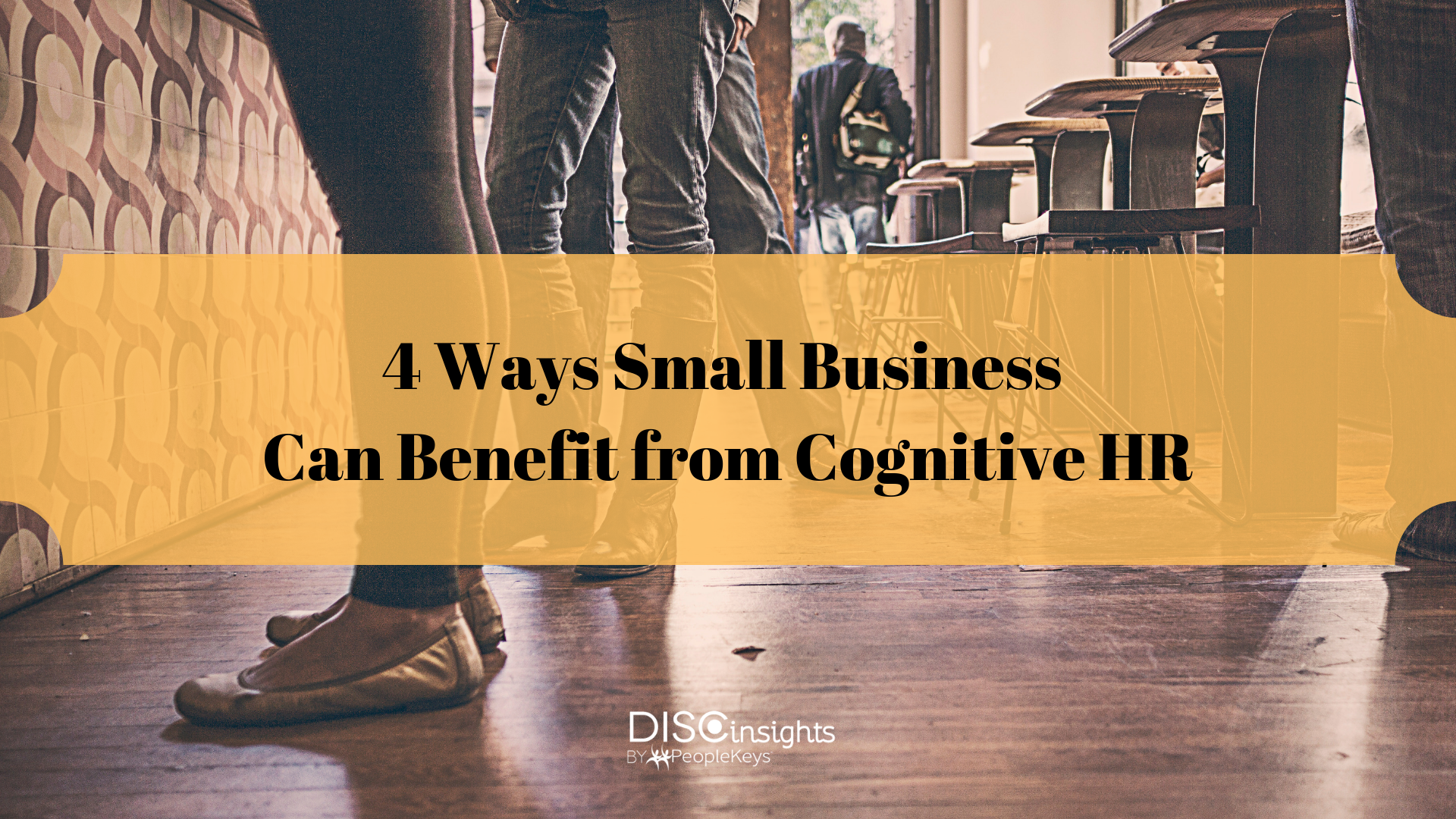- SHOP BY PRODUCT
- DISC TRAINING & CERTIFICATION TOOLS
- DISC RESOURCES
- BLOG
- SHOP BY PRODUCT
- DISC TRAINING & CERTIFICATION TOOLS
- DISC RESOURCES
- BLOG
- ALL ITEMS



Cognitive computing is here to stay and it is revolutionizing healthcare, the way we shop, and the way we work. Data analysis in human resources (i.e. people analytics) is having a surprising impact on corporate profits by way of increasing job satisfaction, retention and productivity, which has made executives take notice. Over time, HR leaders are thinking more like owners, as HR departments adopt cognitive HR systems to increase hard numbers (like profits) with softer ideals (like job fulfillment). According to an American Statistical Association report on the SHRM website:
“53 percent of HR departments use big data to help make strategic decisions; 71 percent use it for the sourcing, recruitment or selection of candidates; 63 percent use it to identify the causes of turnover and for employee retention strategies or trends; and 61 percent use it to manage talent and performance.”
Companies like IBM/Watson have spearheaded the cognitive HR movement with their studies and are disrupting the HR industry. No longer can HR be looked at as a cost center.
What exactly does cognitive HR do? Cognitive computer technologies perform functions and give insight into human behavior far greater than what can be known through human intuition alone.
Cognitive HR technology, according to an IBM study, has the capability to do a number of impressive functions increasing human:
Understanding: A cognitive HR system looks for specific patterns in structured and unstructured information to retrieve the most important data.
Learning: Loads of data are added to a cognitive HR knowledge base, which is later used to learn the trends in the HR field.
Reasoning: When it comes to analyzing data, a cognitive HR system is designed to provide the HR practitioner with underlying insight on human behavior, motivational behavior and many more natural preferences and personal characteristics.
Although this technology and its complex processes are fascinating, you’re probably wondering what it means for the entrepreneur, small-mid-sized business, or for those small employers who don’t have an HR department.
Cognitive HR benefits for your small-medium size business (SME):
PeopleKeys has been hiring within the world’s largest and smallest organizations for over 35 years. In that timeframe, they have amassed best-practice behavioral data on millions of occupations in thousands of company cultures. Each day, the PeopleKeys occupational database gets richer with behavioral insights on a wide variety of new and emerging job titles and roles.

© PeopleKeys. All Rights Reserved
WORKING DAYS/HOURS
Mon - Fri / 8:30AM - 5:00PM EST
